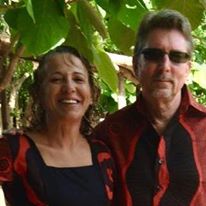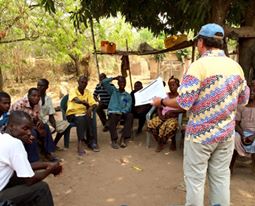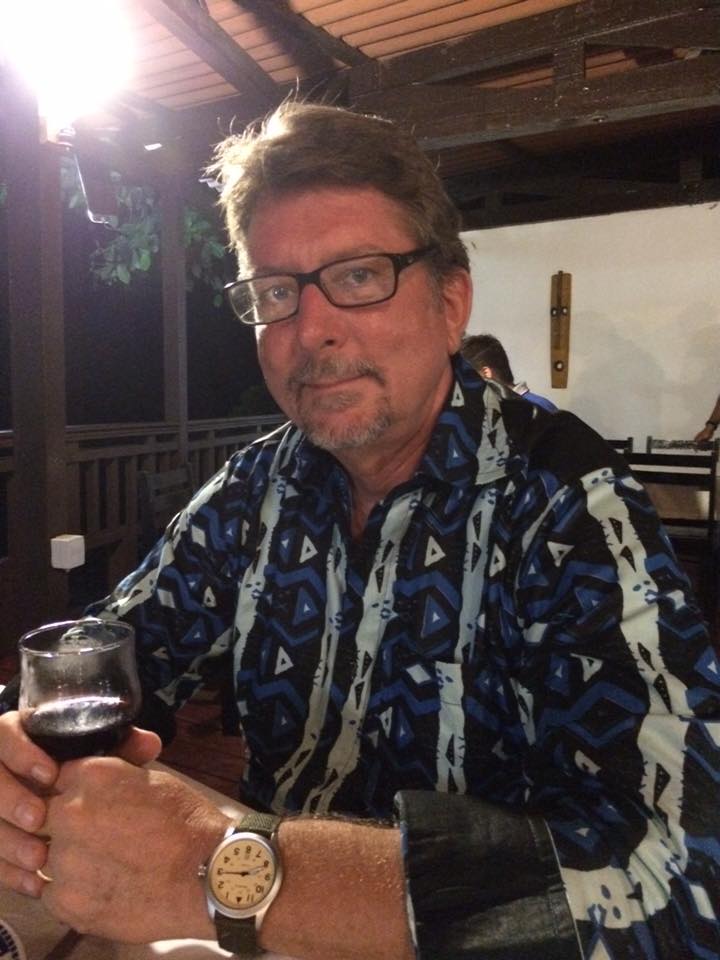James Reindl worked for 31 years for The Associated Press in roles from journalist to corporate staff. He and his wife, Graca, decided in 2012 to change their lives by applying for the United States Peace Corps. They have been serving as agri-business volunteers in rural Ghana since October 2014 and will finish their Peace Corps service in December.
Jim was one of my favorite coworkers, not just because we both studied journalism at Central Michigan University. We’re Facebook friends so I’ve been able to watch his Peace Corps adventure from a distance. He recently posted that their stint will end soon so they’re trying to figure out what’s next after such a massive life change. This is my friend, the former AP journalist, reflecting on the decision to leave behind their comfortable life in Chicago and redefining what matters.

On a frigid winter day in Chicago in 2012, my Brazilian native wife came through our apartment door red-cheeked and determined. She’d recently returned from a solo visit to family and friends near Belo Horizonte, welcomed back by the weather forecasters’ favorite new phrase – “polar vortex.”
“You can do whatever you like,” Graca said, peeling off her coat and hat. “But I’m never spending another winter in Chicago.”
I’d heard this kind of talk before but there was a different tone, more decided than wistful. It suggested I pay attention and withhold my usual platitudes about how great the city was, especially in summer, which seemed particularly far off at that moment.
The conversation turned to what we might do next and I casually mentioned Peace Corps. As a naturalized citizen, she wasn’t familiar with the Peace Corps so I explained what I knew.
“Do they work in places it’s warm?” she asked. “Yes, sure they do,” I assured her. “Then I’ll do it.”

And here we are serving as agri-business volunteers in rural Ghana in West Africa.
That’s the story I like to tell over a beer with friends. It did happen and Chicago’s brutal winters played some small role but what really brought us here is life. You know life; it’s the culmination of whatever you’ve done combined with whatever you’re doing, seasoned with whatever you think you should be doing.
I’d worked for 30 years for The Associated Press as a journalist and later in business and product development. Graca had run her own cleaning business. We had the nice downtown apartment, the nice car, comfortable furniture, good friends. They don’t call these things “trappings” for nothing.
This isn’t just a tale of middle class ennui, though. Sure, I’d sit on our couch gazing at the skyline and think we were working to support a lifestyle we didn’t really need or want. And, real or imagined, I was feeling less relevant at work with yet another job shift being thrust upon me. Graca definitely was tired of scrapping with the pressure and stress of owning her own business.
There was also the sense that all those forks in the road from years past had led us “HERE” and now, somehow, the road looked like it ran straight to oblivion. Where was the next fork coming from if we didn’t make it ourselves?
I’d thought about Peace Corps years ago but the forks I took led me farther from acting on PC but not from doing service. I did volunteer work in Chicago and now there was a way to combine the two.
With Graca’s agreement we went off to a recruiter and roughly 18 months later we landed on Oct. 8, 2014, in Accra to begin training and our service.
Now we’re on the slow glide path to the end of service in December and another fork. Was it worth it? Did we accomplish anything? What’s next?

Creating our own fork in the road to choose between continuing our life and doing something completely different definitely was worth it. It’s funny to write that sentence because “it” was the very thing we were deciding to get away from. And, I’ll admit, I’ve found myself from time to time longing for some of what I was longing to leave behind. I chalk that up to human nature.
Business school teaches you about opportunity costs. Giving up comfort and a healthy income for a life in rural Africa and the enforced poverty of a Peace Corps volunteer makes you look like you flunked. But the reward of living in another culture – however stressful, and it is – cannot be compared with money.
One of the biggest challenges here is redefining success. Americans like things measureable and quantifiable. We want our ROI and we want it in the near term. Peace Corps is about sustainable development and that simply doesn’t lend itself to mass scaling when you’re working one community – one person — at a time.
Globally, PC has three goals:
- work in your assigned discipline;
- introduce your host culture to American culture, and;
- introduce Americans to your host culture.
In a way, then, just completing your service and talking about it with the folks back home makes you a successful volunteer.
Most everyone I know has done far more but it’s still simple stuff. For example, we’ve started three community-based organizations but only one of them is really doing anything. We’re raising fowl and rabbits and doing a couple of school gardens to help improve income and nutrition.
Two years might seem like a long time but when you’re working with a different culture you can barely scratch the surface of behavioral change in that time. Success often blossoms well after you’re gone and there’s no one here to measure it.
Want proof? On a recent trip to Sao Tome And Principe we met a man who saves turtles. He said he was trained by a PCV more than 20 years ago and he never spoke to the volunteer again after he finished his service.
Will they talk about us in Wusuta in 20 years? It doesn’t really matter. We know we’ve done some small good and we can take that with us as we head to whatever is next. We’re learning to live with uncertainty.
It isn’t always pleasant but we’re learning to accept what we get rather than force our experience into our expectations.
We no longer own a home though we have a few things in storage back in Chicago. We’re going to have to figure out a plan. December’s fork is coming but who knows? We might get an entire set of silverware to choose from!
